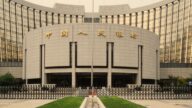【新唐人2014年01月27日讯】美国证监会怀疑9家在美国上市的中国企业涉嫌欺诈,要求负责审计的“四大”会计司事务所,提供在审计过程中使用的“工作文件”或企业档案,但“四大”以违反中国法律规定为由予以拒绝,因而被美国证券交易委员会起诉,并要求暂停“四大”中国分部,为美国上市交易企业提供审计服务。
“德勤”、“安永”、“毕马威”和“普华永道”,这四大全球最大的会计师事务所,被业内称为“四大”。 1月23号,美国证券交易委员会裁定,禁止“四大”中国分部在美国执业半年。原因在于“四大”拒绝向美国检方提供审计文件,以协助美国证券交易委员会,调查这些在美上市的中国企业涉嫌金融诈骗。
北京注册会计师杜延林,曾经担任“中石化”海外上市时的审计项目经理,他认为美国证监会和“四大”的矛盾,应该在于美国证监会要求“四大”交出审计的底稿上。
北京注册会计师杜延林:“比如说中石化如果是造假的话,它的底稿能不能验出来,这是有疑问的,因为好多造假并不在账面上体现出来。甚至它的轨迹你都看不到,他可能从其他的渠道来做这些事情,底稿上可能有些蛛丝马迹,因为四大审计,它删掉重要性原则,他认为不违反它的重要性的他可以不披露,但是证卷监管(部门)可能(认为)这些问题可能就会发现一些舞弊的线索。”
“四大”的客户几乎涵盖了绝大多数大型跨国公司中国分支,同时,为了取信于美国证券交易委员会以及美国本土投资者,多数赴美上市的中国公司,也都选择了“四大”作为审计机构。
《上海证券报》分析,美国法院的处罚决定,如果最终获得通过,代表着在华跨国公司将为公司的中国业务更换审计机构,同时超过200家在美上市的中国公司,也都将进行相应的更换。尤其对那些正在赴美上市进程中的中国公司会造成巨大损失。
原“普华永道”注册会计师李丽:“上市公司的财务报表呢是对社会大众公开的,能帮助投资人和债权人了解企业的经营状况,一般来讲,被审计过的财务报表,被大众认为可信度比较高,那么,虚假的财务报表通常会误导投资人。”
曾经,全球最大的会计师事务所“安达信”,因配合上市公司做假账,逃避美国证交会调查,最终名声扫地,近百年的老字号被迫退出审计业务,使会计业内的“五大”变为“四大”。
“英国广播公司《BBC》”分析报导,中国的数字可信度不高,一些公司为了避税或得到出口退税补贴等原因,往往虚报销售及利润。而且,官方的统计数字为了政治原因,也可能随便改变。
据报导,2010年前后开始,至少130家中资公司的会计或信息披露问题,在美国遭到质疑,这些中资公司很多通过“反向收购”在美国上市。过去两年来,美国证监会针对多家中资公司及高管,提起了约20项诉讼,指控这些公司存在一系列欺诈行为,公司股价因此大跌。美国投资者因此蒙受了数十亿美元的账面损失。
而自2011年以来,美国证监会逐步收紧了中国企业“反向收购”的门槛,还在2012年12月,对“四大”中国分公司提起诉讼,指控“四大”拒绝证监会对中国公司涉嫌会计造假的调查,违反相关证券法。
“四大”辩称,提供相关资料涉及公司秘密,和违背中国法律。
杜延林:“四大会计师事务所可能也会借助中国官方的一些支持,来抵抗美国的证卷交易机构,他们可能从在中国大陆经营的前景,这个角度考虑问题呢,可能拒绝向美国司法部门提供一些信息。中国政府是个很敏感的政府,因为他们秘密太多,当然这个秘密不一定是商业秘密,更多的是其他秘密。”
目前“四大”正在准备上诉。杜延林指出,如果这个事情发生在中国,不管是“四大”还是国内任何一个会计师事务所,都必须无条件配合调查。
采访编辑/刘惠 后制/舒灿
Dangers of Fraudulent Business Data – Now The SEC Take Action
It is reported that on suspicion of fraudulent accounting practices of nine U.S.-listed Chinese companies,
the powerful Securities and Exchange Commission (SEC)demanded that the Big Four release the audit information of their clients.
However, the Big Four refused to present the data about companies based in China and listed in the U.S., saying they endeavoredto comply with Chinese secrecy laws.
A U.S. SEC judge has decided that the Chinese units of the Big Four accountants should be suspended from auditing.
The Big Four are Deloitte, Ernst & Young, KPMG and PwC,the four largest professional accounting firms in the world
On January 23, the U.S. SEC decided to suspend the Chinese branches of the Big Four for six months.
The reason is that the Big Four refused to provide work papers of the audits to the SEC for conducting investigations of suspected financial fraud of US-listed Chinese companies.
Beijing CPA, Du Yanlin, once an audit manager of overseas-listed Sinopec, suspects the problem lies in the audit papers.
Du Yanlin, Beijing CPA: “Take Sinopec for example. If Sinopec is suspected of fraud, it is questionable if any fraud would show in the audit.It is very hard to trace it because they might manipulate the data through other ways There also might be some clues in paperwork.The Big Four could have deleted the clues during the audit as long as it does not violate the principles.However, the SEC does not believe so."
The Big Four handle the vast majority of audits for large
international companies in their Chinese subsidiaries.
The vast majority of US-listed Chinese companies also choose
the Big Four as their auditing agencies in order to gain the trust of
the SEC.
Shanghai Securities News speculate that the six month suspension will result in a change of audit services of international Chinese companies.
More than 200 US-listed Chinese companies will also make the switch.
This is evidently causing tremendous losses to those Chinese companies in the process of being listed in the US.
Lee Li, Former PwC CPA: “The financial statements of listed companies are open to the public.It helps investors and creditors to assess the business.
In general, audited financial statements are relatively credible. Fraudulent financial statements often mislead investors."
Arthur Andersen was once the world’s largest accounting firm.
Its fraudulent practices and obstruction of justice finally discredited the company and turned the Big Five into the Big Four.
The BBC Chinese report pointed out the skepticism of the data the Chinese companies have presented.
To cut taxes or receive tax credits, false sales and profits are generally reported.
The official data may also be altered for political purposes.
WSJ reported that at least 130 such companies encountered questions about their accounting or disclosures, starting around
2010.
Many of the companies had gained access to U.S. markets through “reverse mergers."
The long arm of the SEC has filed about 20 lawsuits and administrative proceedings against various Chinese companies and their executives over the past two years,
alleging a variety of fraudulent practices.
That wave of alleged problems caused the companies ‘ stocks to plunge, costing U.S. investors billions of dollars on paper.
Since 2011, the SEC have since clamped down on the use of reverse mergers to get onto U.S. exchanges.
The Big Four ‘s refusal to cooperate with the request to share papers for relevant investigation has resulted in the SEC ‘s administrative proceeding against them, reported the WSJ.
The Big Four argue that they tried to comply with Chinese secrecy laws.
Du Yanlin: “The Big Four could have resisted the SEC with the official support of the communist regime, and considerations for the aspect of business in China.
The communist regime is a complex Government, with too many secrets, not necessarily trade secretes , but many more besides."
The Big Four are preparing to appeal.
Du Yanlin indicates that if it were in China, any audit firm, including the Big Four, would have to comply and cooperate unconditionally.
Interview & Edit/LiuHui Post-Production /ShuCan
























